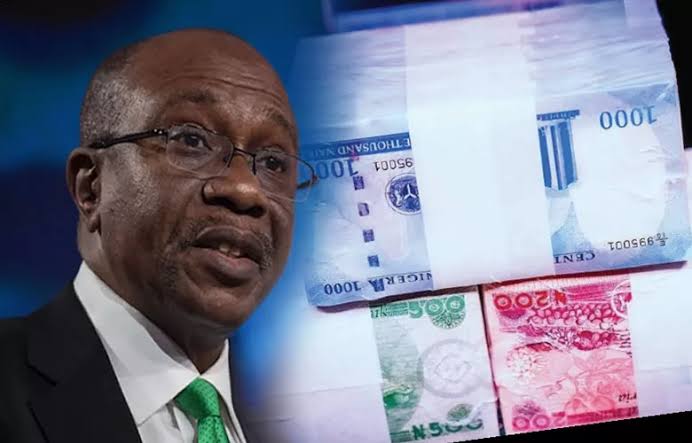
With the December 31st deadline issued by the Supreme Court over the legal status of the old naira notes drawing nearer, many Nigerians are lamenting the unavailability of the redesigned naira notes.
It was gathered that about 80 percent of the naira notes spent by Nigerians now are the old notes.
Recall that the seven-member panel of the Supreme Court led by John Okoro had ruled that the old notes should circulate alongside the new notes until the end of the year.
Despite the judgment for the notes to be used side-by-side, bank customers nationwide have revealed that much of the money they have been receiving at banking halls and ATMs are the old notes. Traders and transporters also say customers hardly pay them with the new notes.
In many of the bank’s branches visited in Victoria Island, Matori, and Ikeja axis of Lagos, there were still queues of customers wanting to make cash withdrawals with the N20,000 weekly limit, with banks only being able to disburse the old notes.
Officials of the CBN told The Nation that many Nigerians are hoarding the new naira notes ahead of the December deadline for the phasing out of the old notes.
A source at the CBN said about N1 trillion is currently in circulation, and more money is being printed and released.
The source, involved in key monetary policy decisions of the apex bank, added: “People, not only politicians but ordinary Nigerians, are hoarding the new notes because of uncertainties.
“You know December will soon come. That is when all the old notes will cease to be legal tender. So people are stocking the new notes to mitigate uncertainties over the old or new naira notes.”
The CBN official advised the “authorities to engage in massive enlightenment and reassurances that the new notes will be available in and after December.”
According to the official, the CBN “releases N70 billion to the banks to distribute to their various branches every day, and they are largely old notes by way of strategy because of the phenomenon I spoke to you about earlier.
“When people see the new notes, they just take them out of the system and don’t bring them back.
“That is the reason the CBN is dishing out the old notes so that they become available and citizens can make transactions very easily. That is the current position.
“So, it’s not that the CBN is not releasing money at all.”
When told that Nigerians want the new notes, the CBN official said: “Why are people looking for the new notes if they want to buy goods and services and money is available?
“They should leave that strategy to the CBN. That’s the bank’s problem because, by the end of the year, all the old notes being released now will also be removed from the system.
“For now, that is not the problem of the citizens.
“Those complaining are looking for the new notes to hoard. That’s the implication.”
What is happening, the source said, “is that the new notes are not returned to the commercial banks.
“If they can be returning them to the commercial banks, the banks will also give them out to the citizens to use, but it appears that that is not happening,
“I don’t know what the fancy is in the new notes that they are hoarding them again.”
The source said the apex bank will print more new notes between now and December.
The CBN official said that the apex bank strategy, for now, is to meet the present exigencies, ameliorate any suffering, and make money available, either old or new, so that people can have easy access.
The source added: “But the CBN has its own strategy to ease out the old notes before the end of December, so the implication is that there is the likelihood that more new notes will come into circulation.”
One of the reasons the initial attempt at currency redesign failed was the unavailability of smaller denominations of N100 and N200 notes for ordinary citizens to spend.
Admitting that that was a lapse in judgment on the part of the CBN, the official told The Nation: “I envisaged that one. Some of us have also made that point because printing of the lower denomination notes will reduce the prospects of hoarding and counterfeiting of large denomination notes.
“That will help to meet the objectives of the CBN to minimise hoarding and counterfeiting of large notes.
“You know it is the large denomination notes that are very vulnerable to counterfeiting because of the huge profit they make from it.
“So the possibility is there that the CBN will print more of the lower denominations in line with its own objective.”


